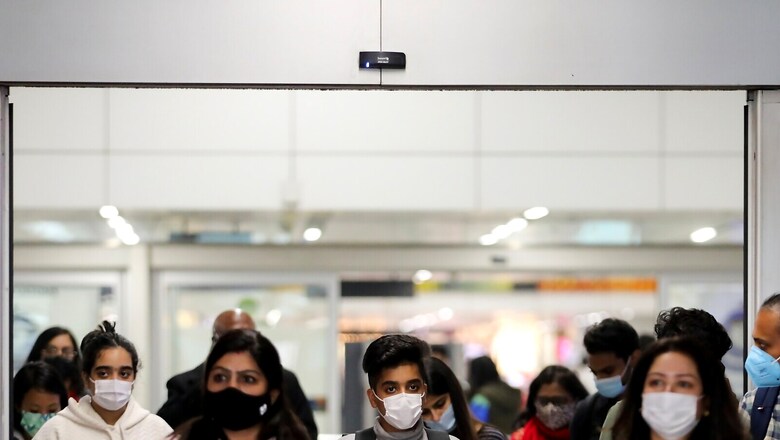
views
The Union health ministry has written to the WHO representative in the UAE to ensure that air passengers exhibiting symptoms suggestive of monkeypox disease are not allowed to board flights to minimise the risk of disease transmission.
Referring to three cases in which the passengers had come to India from the UAE, Joint Secretary in the Union Health Ministry Lav Agarwal in a letter to Executive Director and IHR Focal Point, United Arab Emirates, Dr Hussain Abdul Rahman Ali Rand said they were already exhibiting symptoms suggestive of monkeypox disease before arrival in India.
Under Article 18 of International Health Regulations (IHR) 2005, the World Health Organization recommends member states to undertake exit screening measures at points of entry and if required impose restrictions on persons from affected areas in response to a public health emergency of international concern, he mentioned in the communication dated August 1.
“In view of the above, it is requested that exit screening of may be further intensified so as to ensure that persons exhibiting symptoms suggestive of monkeypox disease are not allowed to board the flight to minimise the risk of disease transmission,” Agarwal said in the letter, copies of which were sent to WHO representative to India, Joint Secretary (Gulf), Ministry of External Affairs and Joint Secretary (U) in the Ministry of Civil Aviation.
As the global community grapples with yet another public health emergency of international concern, it is essential that IHR focal points maintain a continuous coordination and share key information to avoid spread of disease across international boundaries. India has reported eight cases of monkeypox, which includes one death, so far.
The Centre has also constituted a task force on monkeypox to closely monitor the emerging situation in the country and decide on response initiatives to tackle the spread of the disease. It will also provide guidance to the government on expansion of diagnostic facilities in the country and explore emerging trends related to vaccination for the disease, official sources had told PTI. The World Health Organisation (WHO) on July 23 declared monkeypox a global public health emergency of international concern.
According to the WHO, monkeypox is a viral zoonosis — a virus transmitted to humans from animals — with symptoms similar to smallpox although clinically less severe. Monkeypox typically manifests itself with fever, rash and swollen lymph nodes and may lead to a range of medical complications. It is usually a self-limited disease with symptoms lasting for two to four weeks.
The ‘Guidelines on Management of Monkeypox Disease’ issued by the Centre, stated that human-to-human transmission occurs primarily through large respiratory droplets generally requiring prolonged close contact. It can also be transmitted through direct contact with body fluids or lesions, and indirect contact with lesion material such as through contaminated clothing or linen of an infected person. Animal-to-human transmission may occur by bite or scratch of infected animals or through bush meat preparation.
The incubation period is usually from six to 13 days and the case fatality rate of monkeypox has historically ranged up to 11 per cent in the general population and higher among children. In recent times, the case fatality rate has been around three to six per cent. The symptoms include lesions which usually begin within one to three days from the onset of fever, lasting for around two to four weeks and are often described as painful until the healing phase when they become itchy. A notable predilection for palm and soles is characteristic of monkeypox, the guidelines stated.
Read all the Latest News and Breaking News here



















Comments
0 comment